Dear Substackers,
One year ago I set up The Book Club Review on Patreon. One of the benefits for subscribers has been a weekly email from me. From book reviews and interviews with bookish folk, to behind the scenes of the pod and the books Laura and I currently have on the go, it’s my weekly reading diary. Alongside Patreon I’m now bringing this to Substack as well, in a new format, The Book Club Review Weekend. For a small monthly fee you’ll receive a weekly dispatch from me in audio and written form (as some like to listen, some like to read).
I’ll also be posting the regular podcasts here on Substack, which will continue to be free for everyone.
It’s a new venture, but I’m excited for the possibilities. I hope you’ll consider becoming a paid subscriber. As a taster, this first one is free.
Kate x
Returning from holiday I was going to do a summer reading report, but I think that’s all pretty much covered in latest episode of the pod (that’s episode #165, just out, in which Laura and I cast a critical eye back over our summer reading piles). I got home from the seaside to find a little pile of Bookseller magazines waiting for me, full of forthcoming publications and so here are the books I’m looking forward to this Autumn. I also thought we could play a little game of Battle of the Covers: UK vs. US?
1. Intermezzo by Sally Rooney (end of September)
Shall we start with the obvious? I’m not an especial fan of Sally Rooney’s work – I liked Conversations with Friends, liked Normal People too, but didn’t feel any compulsion to read Beautiful World, Where Are You when it came out. Funnily enough a substack from Elif Batuman the other day actually made me think Beautiful World is the one I’d potentially find most interesting out of the three, as apparently Rooney is wrestling with the problematic relationship between artistic creation and the business / publicity / marketing machine that is publishing - and boy oh boy I imagine she has a few thoughts on that!). Early word on her new novel Intermezzo seems good, and I had a super advance report waay back from my friend Chloe Schama, culture editor at Vogue US. She had an early advance copy (of course) and was halfway through it when I caught up with her in New York. She said she had found it an absorbing and interesting read, a contemporary take on Joyce in Rooney’s inimitable style. Writing it up in Vogue she elaborates: ‘Is the Irish novelist sending a message about the artist as a young woman? If so, there’s nothing objectionably pointed or politcal in Intermezzo, which does take some getting used to if you’re expecting the typical Rooney vernacular, but the book rewards the effort. In another shift, the central characters here are men—a pair of brothers—rather than women, navigating the death of their father and romantic relationships. One of those brothers is a serious chess player, and the game offers a frame for the book as a whole: How much can you plot out and foresee the trajectory of your life, and how much is subject to forces beyond your control?’ So that’s Chloe Schama’s take. I’m intrigued and looking forward to reading Intermezzo and being part of the cultural zeitgeist when it happens, for once.
Battle of the covers: Both pick up on the chess game as theme but for me the US version knocks it out of the park with the clever play on chess pieces that turn into human shadows on the board. I might have to try and import a copy.
Australia and NZ (same as US)
2. The Empusium: A Health Resort Horror Story, Olga Tokarczuk (end of September)
From the blurb: ‘In September 1913, a young Pole suffering from tuberculosis arrives at Wilhelm Opitz’s Guesthouse for Gentlemen, a health resort in the Silesian mountains. Every evening the residents gather to imbibe the hallucinogenic local liqueur and debate the great issues of the day: monarchy or democracy? Do devils exist? Are women born inferior? War or peace? Meanwhile, disturbing things are happening in the guesthouse and the surrounding hills. Someone – or something – seems to be watching, attempting to infiltrate this cloistered world. Little does the newcomer realize, as he tries to unravel both the truths within himself and the mystery of the sinister forces beyond, that they have already chosen their next target. A century after the publication of The Magic Mountain, Olga Tokarczuk revisits Thomas Mann territory and lays claim to it, blending horror story, comedy, folklore and feminist parable with brilliant storytelling.’ What can I say, Laura and I love a sanitorum (as discussed comprehensively in our Magic Mountain episode, and we came back to it in our recent summer reading book chat - in essence going to a comfortable place in the mountains where they feed you well and there’s nothing to do except read seems to us like heaven, although in an ideal world we’d prefer not to be suffering from tuberculosis to experience it). I’m also a huge fan of Tokarczuk and her writing – The Books of Jacob may have defeated me but this feels more back in Drive Your Plow territory. Anticipation is high.
Battle of the covers very much comes down to your feelings on Fitzcarraldo’s minimalism and that particular shade of blue. If like me you’re a fan you might prefer it to the clever US illustration of what looks like an Edwardian lady with skeletal overlay.
Australia and NZ (same as US)
3. A Thousand Feasts: Small Moments of Joy...A Memoir of Sorts, Nigel Slater (September)
Looking back on life from the grand old age of fifty there are some voices who have always been there for me. Nigel Slater’s 30-minute feasts was my first proper cookbook and saw me through my early years in London post-university. His recipes are delicious and reliably straightforward to make, his writing is a joy and in recent years thanks to Instagram he now feeds our obsession (well, mine, but not just me, clearly) with beautiful interiors, gardening and a thoughtful, contemplative lifestyle. Anyone who has seen Slater’s wall-sized Edmund de Waal porcelain installation in his downstairs kitchen (he has two!) can tell you that here is a man who has never had to organise his household around children, and while I might envy his interiors I think I can point to plenty of practical reasons why it’s not a lifestyle I could even attempt to emulate. (Even his handwriting is exquisite, damn him.) But I do love reading about it all, and A Thousand Feasts promises to be slightly more of the lifestyle content mixed in with the usual recipes. I love the way Slater’s books are evolving towards this memoir form. He’s rapidly achieving Living National Treasure status, and I think he absolutely deserves it.
This minimalist cover with gently falling Japanese maple leaves feels peak Nigel Slater and absolutely perfect.
4. The City and Its Uncertain Walls, Haruki Murakami (November)
Small sigh. Murakami and I have never got on. Theoretically I should love him. I love Japan, love inventive pacey books with a bit of a thriller edge. I’m always intrigued by a cult following. And yet I’ve not enjoyed a single book I’ve read by him over the years, with the memoir about running being particularly exasperating and Colorless Tsukuru Tazaki and His Years of Pilgrimage another low point. And yet, as the blurb promises, ‘A love story, a quest, an ode to books and to the libraries that house them’ – I could be here for that. (Tho’ I wonder if Murakami has looked at the astronomical sales of things like Days at the Morisaki Bookshop and thought ‘I could do with a piece of that’. Murakami aficionados are probably howling at this point, forgive me. And it’s true many readers whose opinions I trust are fans (IQ84 gets a particuar rave from my friend Jo). So I’m registering my openness to this latest book, although I’m not going to rush to add it to the top of the pile. (It’s 464 pages long, I’ve just noted with mild alarm.)
Interesting to compare the UK cover, where they’ve gone for what I think of as the standard translated-japanese-novel identity, right now, of simple flat, graphic illustration, and the US, which seems to have more of a Dan Brown thriller vibe (although is that the final version? It has a slightly provisional air about it.)
5. Mina’s Matchbox by Yoko Ogawa (August)
From a Japanese author I’m dubious about to one I enthusiastically endorse and that is Yoko Ogawa. I’ve read two books of hers, The Housekeeper and the Professor and The Memory Police and enjoyed both, in different ways. What particularly struck me is the way The Memory Police has stayed with me, over the years. It remains a favourite book club book as well, the perfect formula of beautiful prose, not too long, not too short, and full of fascinating ideas to discuss. Her latest just came out translated by Stephen Snyder (who also translated The Memory Police). It’s described as a coming of age tale set in early 1970s Japan exploring the friendship and mutual curiosity between two extraordinary young people. But Ogawa is a writer where I almost don’t care what the book is about, I’m just keen to experience her prose.
Battle of the covers. Both UK and US feature an illustration of a young girl riding on the back of a hippo, the UK’s has a punchy graphic quality and also a strong historical vibe, while the US version feels more edgy. Hard to call, in this case I like both.
Australia (same as UK)
6. The Wood at Midwinter by Susanna Clarke (October)
I’m such a Susanna Clarke fan I’ll even gobble up this printed book form of a short story that originally seems to have been commissioned by the BBC. At just 64 pages it promises to be a tiny delight. Listeners to our latest episode will know Laura picked up a beautiful hardback edition of Clarke’s debut novel, the doorstop Jonathan Strange and Mr Norrell at the Vancouver Public Library book party. To my mind it’s the most perfect combination of Georgette Heyer tribute meets magical faerie fantasy, but Laura, who has read it once before, wasn’t as swept away by it as I was. She’s keen to revisit it though. Meanwhile is a new, longer novel from Clarke on the way? In her New Yorker profile she referred intriguingly to a project she had in mind, an ‘anti-horror novel. Asked to elaborate she said “Horror novels have this idea that there’s a kind of secret at the center of the world. And that secret is horrific.” This, Clarke observes, “isn’t much of a secret, really.” Anyone can look around at the world and see that. “So this would be more about the fact that, at the center of things, there’s a secret or mystery, and it is joyful.”
Both US and UK covers seem to be the same and slot the book nicely into that pretty, abstract way they tend to do fantasy book covers these days when they can't put a dragon on it. Either US publishers have made more effort with their publicity photo, or theirs is gold-foiled while ours is just matt. I suspect they'll probably both be the same, though.
7. Entitlement, by Rumaan Alam (September)
I didn’t read’ Leave The World Behind as it played with anxieties I generally try not to encourage. That said, this has often felt like an omission as Alam seems like a writer with a thoughtful view of the world whose work I would enjoy, able to write enjoyable plot-driven novels at the same time as offering analysis and critique of contemporary life. In a Guardian interview I found he commented “Anita Brookner is one of my favourite writers but some readers would say all of her novels are essentially indistinguishable from one another. Then there are writers like Jennifer Egan, where every novel is an experiment. I aspire to be like Egan, and then find myself writing like Brookner.’ In Entitlement ‘an ambitious young Black woman is plotting her way into the world of the one percent. An old white billionaire, facing his own extinction is attracted to her intelligence, her refusal to be deferential, maybe also her Blackness. She's drawn to his power and money – and his apparent willingness to share both with her. But how far is each prepared to go to get what they think they deserve?’ The publishers say ‘Taut, unsettling, and alive to the seductive distortions of money, Entitlement is a riveting tale for our new gilded age, a story that confidently considers questions about need and worth, race and privilege, philanthropy and generosity, passion and obsession.’ This has got great book club read written all over it.
UK and US both share this cover that makes me think of 1980s Tom Wolfe.
8. Didion and Babitz, Lili Anolik (November)
The one all the cool girls will be reading. I know a fair bit about Joan Didion, have read the obvious of her books and enjoyed The Centre Will Not Hold, the documentary made by her nephew Griffin Dunne (with his own book out recently, The Friday Afternoon Club, that also caught my eye). As with most people I love her work although I’ve always been slightly suspicious of how much of her fandom is to do with her words and how much the fact that she looked like a model, lived mainly off handfuls of salted almonds and wrote for Vogue). But the substance is there, no doubt of that. I don’t know much at all about Babitz but from what I have gleaned she sounds slightly more relatable. The person I do know something about is Lili Anolik and that’s because I absolutely loved her podcast series Once Upon A Time at Bennington, which is my go-to recommendation for anyone who loves The Secret History. As someone who doesn’t get a lot of listening time the joys of long-form podcasting are largely lost on me but I did manage to work through this one and found it enthralling. So I’m very keen to encounter Anolik in print and to read her take on these two fascinating, talented women.
So far as I can tell the US and UK editions both have the same striking juxtaposition of black and white images of the two women, Didion looking straight at the camera, assentingly, Babitz dishevelled, looking up at Didion with mischief in her eyes. I really love the way this starts telling a story before you’ve even opened the book.
9. The Position of Spoons and Other Intimacies by Deborah Levy (November)
The publishers say ‘From twice Booker-shortlisted author Deborah Levy, a moving and revelatory collection exploring the muses that have shaped her life and work as a writer. … From Marguerite Duras to Colette and Ballard, and from Lee Miller to Francesca Woodman and Paula Rego, we can relish here the richness of their work and, in turn the richness of the author’s own.’ Oh my. One for the Levy fans, obviously, but I count myself firmly among their number. I can’t wait.
As for the covers, tricky. How different these are! The UK has quite a sexy, intriguing image of a young man in shorts (lower half only) and some oddly shaped spoon-like forms on the floor. The US, meanwhile, plays it straight with this cover that looks more like a cookbook than an essay collection, but it’s elegant and poised as Levy is herself and so I think it maybe edges it, for me.
10. The Company of Owls, Poll Atkin (November)
Maybe it’s just the mood I’m in, returning to central London after three weeks in the beautiful Suffolk countryside, but I was drawn to this one – and who doesn’t love an owl? The blurb says ‘In the woods above Polly Atkin’s home in Grasmere, Cumbria live the tawny owls she calls her neighbours. Each night, they come down to her cottage at dusk, calling out as night falls – in particular a trio of owlets she watches grow from fledglings to young adults. The Company Of Owls is a love song to these incredible creatures, and a reflection on what makes them, and us, unique and distinctive. It’s a call to find joy in unexpected places and times. It is a lesson in learning to listen – to really listen – when all around us seems clamour and noise.’ So say the publishers, but I feel like nature writing and books about birds are plentiful so why this one? It was this particular story in The Bookseller I read about Sam Read, an award-winning bookshop in Grasmere, Cumbria. The previous owner retired last year and Polly Atkin is one of the new co-owners. And as I think books by bookshop owners are possibly my favourite niche category of all time – with the addition of owls, which I’m fascinated by – I’m looking forward to discovering her writing when this one comes out.
No US edition, so let’s just admire the beautiful illustration on the UK one.
Vulture's Best New Book Releases This Fall
Laura is reading at two end of the spectrums just now. She read a short story before bed every night this week after hearing it was the perfect palette cleanser between novels. She agrees and it’s particularly pleasing when you get to check off a story a night from the 946pp short story collection she dipped into with her book club during the first Covid lockdown (That Glimpse of Truth) - those good old days!
She’s since picked up the 782pp Johnathan Strange & Mr Norrell for another heavy tome that makes for a slightly awkward reading experience. Nearly the same length but all one story…
Kate is reading West by Carys Davies. I overheard it being recommended by a bookseller in Hatchards to another customer. She didn’t take it, but when I finished my circuit it was there on the table and I idly picked it up, read a few pages and was hooked. It’s set in early 19th-century Pennsylvania where a daughter waits patiently for her father. He read about the discovery of giant bones in Kentucky, becomes obsessed with the idea of seeing the beasts, and heads West, leaving his ten-year-old child behind. I feel almost certain things are not going to end well, and yet the writing is so vivid and the storytelling so immersive I’m enjoying the ride.



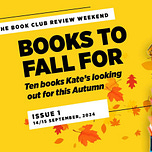

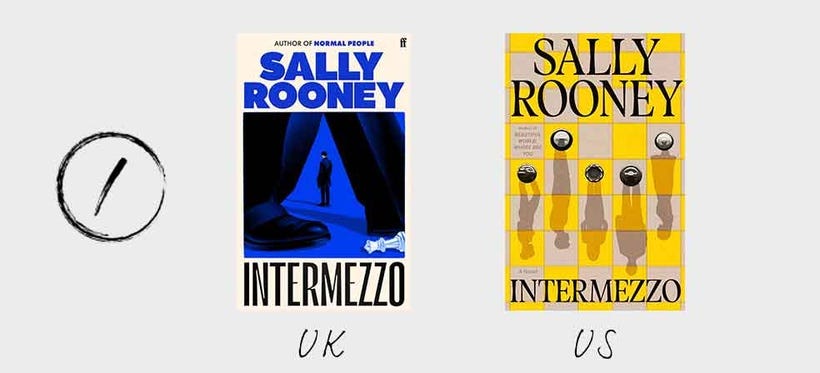

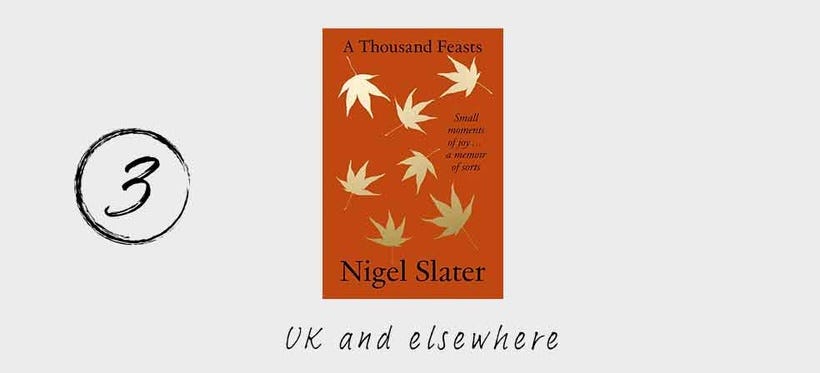
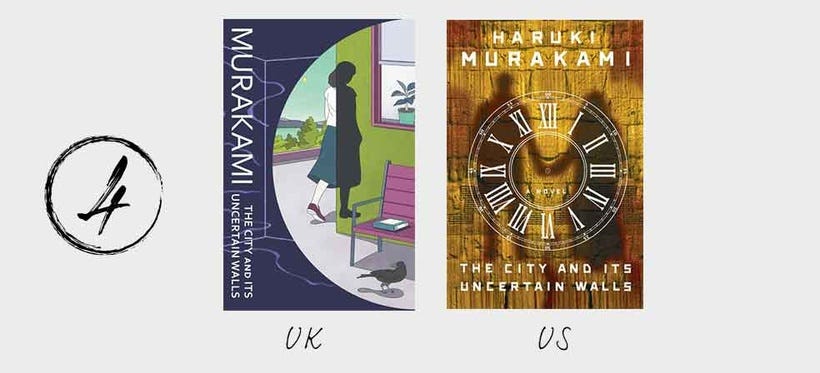

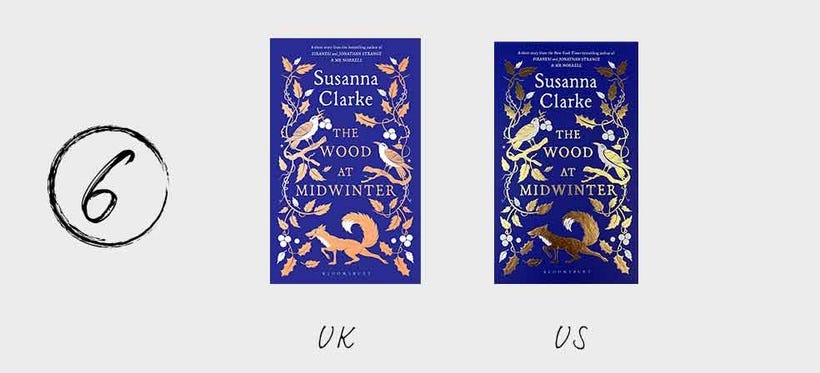







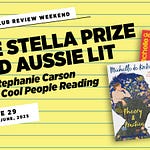






Share this post